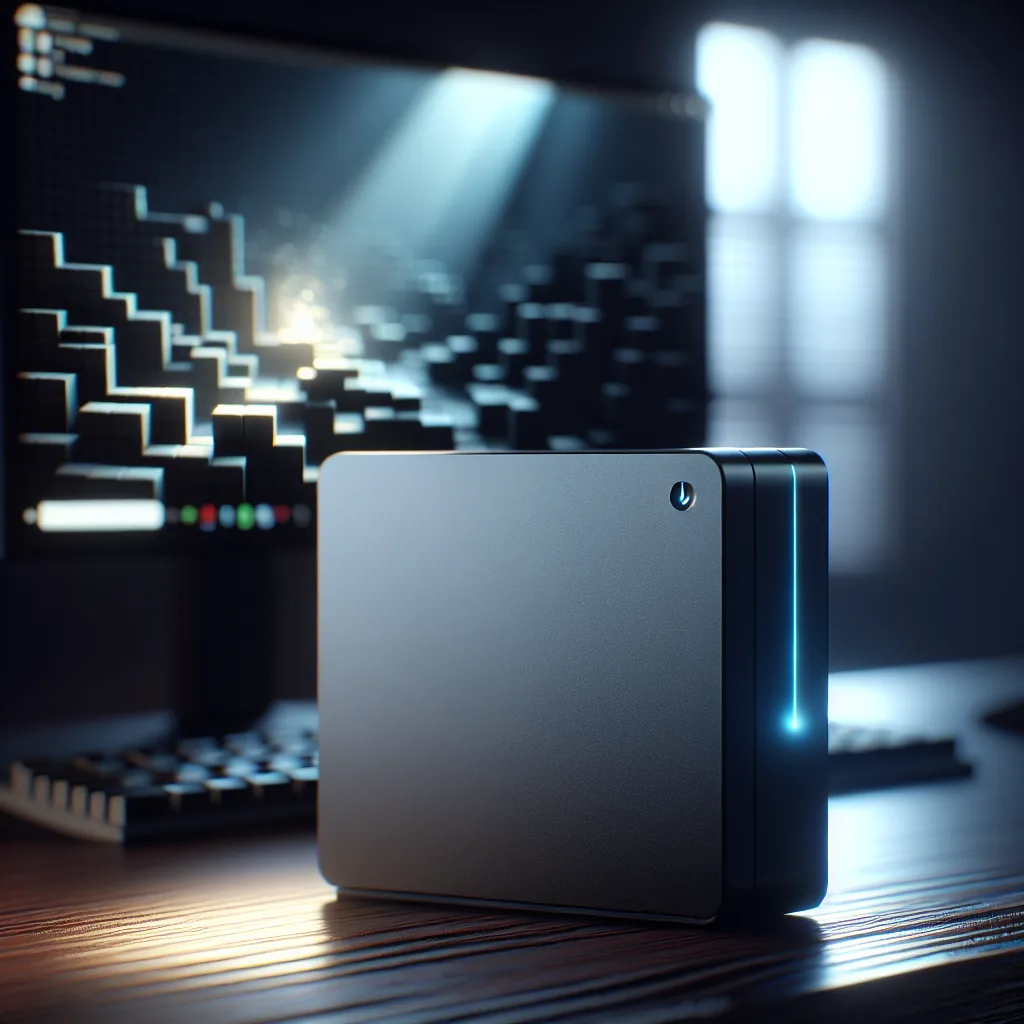Is a powerful mini PC the right choice for a home game server? Exploring the pros and cons of using a MINISFORUM BD795i SE to host games for friends.
My old game server is starting to feel a little tired.
It’s an older machine, built around a Ryzen 3200G, and for years it’s been the trusty workhorse for my friends and me. It’s hosted our late-night Minecraft worlds, our brutal adventures in Ark, and most recently, our scrambles for survival in Abiotic Factor.
But lately, it’s been struggling.
As more friends have joined in, the server has started to lag. You can feel it groaning under the pressure. So, I started looking for an upgrade. My first instinct was to build another tower, but then I stumbled down a rabbit hole that got me thinking: what if the next server wasn’t a big box, but a tiny one?
The Mighty Mini PC
I’ve been looking at these new high-performance mini PCs, and they seem almost too good to be true. Specifically, I’ve been eyeing a build around the MINISFORUM BD795i SE motherboard, which comes with a monster of a laptop CPU soldered right onto it: the AMD Ryzen 9 7945HX.
On paper, this chip is a beast. It has 16 cores and 32 threads, which is a massive leap from the 4 cores in my old 3200G. For a game server, especially when you’re hosting for a growing group of friends, more cores are exactly what you need. Each core can handle different tasks, so the server can manage more players and more in-game chaos without breaking a sweat.
My plan is to take this tiny motherboard and pair it with a whopping 96GB of RAM. It might sound like overkill, but games like Ark are notoriously RAM-hungry, and who knows what we’ll be playing next year. This feels like a good way to future-proof the setup.
So, Is This a Good Idea?
This is the big question I’ve been wrestling with. There are some serious pros and a few cons to consider.
The Good Stuff:
- Incredible Performance: The Ryzen 9 7945HX is a top-tier mobile processor that competes with many desktop CPUs. For running game servers, its high core count is perfect for handling multiple players and even running a few different game servers at once.
- Power Efficiency: Since it’s a mobile CPU, it uses a lot less power than a comparable desktop chip. A server runs 24/7, so a lower electricity bill is a nice bonus.
- Small Footprint: I love the idea of replacing a bulky tower with a tiny, quiet box that can sit discreetly on a shelf. It just feels cleaner and more modern.
The Trade-Offs:
- No CPU Upgrades: This is the main drawback. The CPU is soldered to the motherboard. If a new, must-have processor comes out in a few years, I can’t just swap it in. The entire board would need to be replaced. You have to be confident that the 7945HX will be powerful enough for years to come. (Honestly, with 16 cores, I think it will be.)
- Cooling is Key: Cramming so much power into a small space means you have to be smart about cooling. I’ll need to make sure the case I choose has excellent airflow and that I pick a quality cooler to keep the CPU from getting too hot under sustained load. A hot CPU is an unhappy, underperforming CPU.
My Final Verdict
So, am I going for it? I think so.
The idea of having that much power in such a small, efficient package is just too compelling to ignore. While the lack of upgradeability is a valid concern, the performance of the Ryzen 9 7945HX feels like a safe bet for the next five years, at least for my needs.
It’s a different way of thinking about a home server. Instead of a big, power-hungry tower, the future might be small, efficient, and surprisingly powerful. For anyone out there whose friend-server is starting to show its age, maybe it’s time to think small, too.
